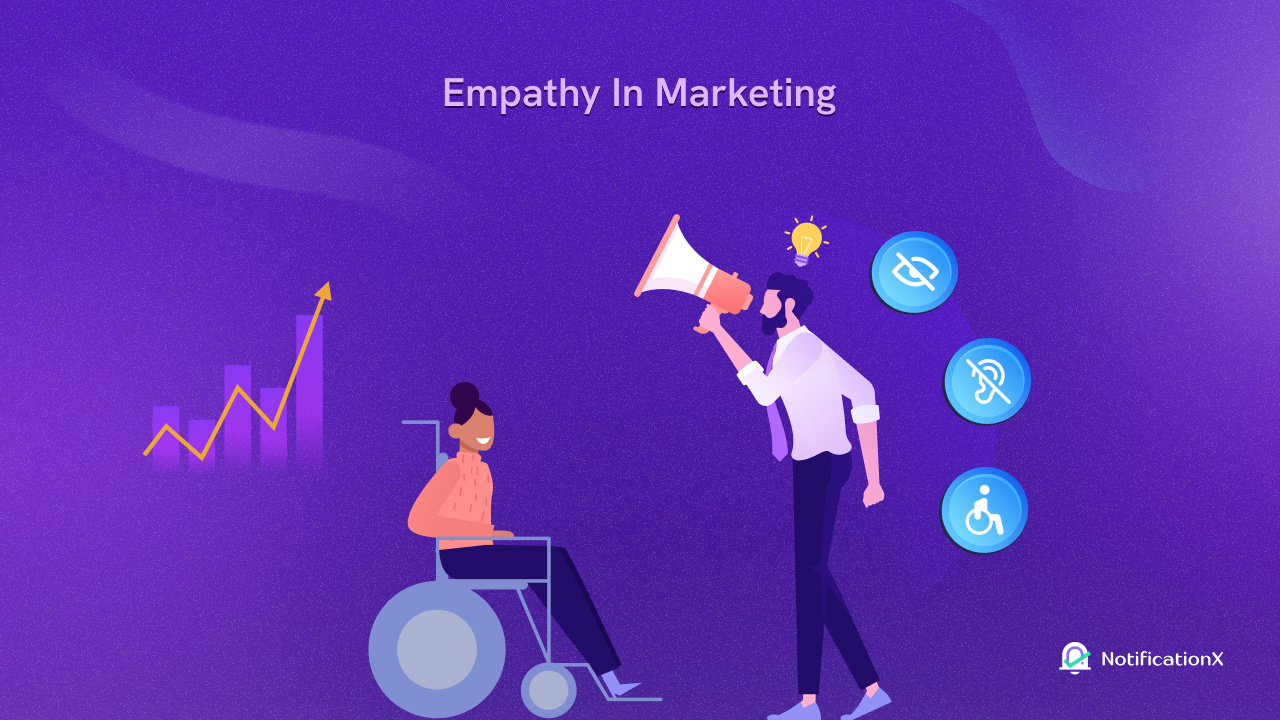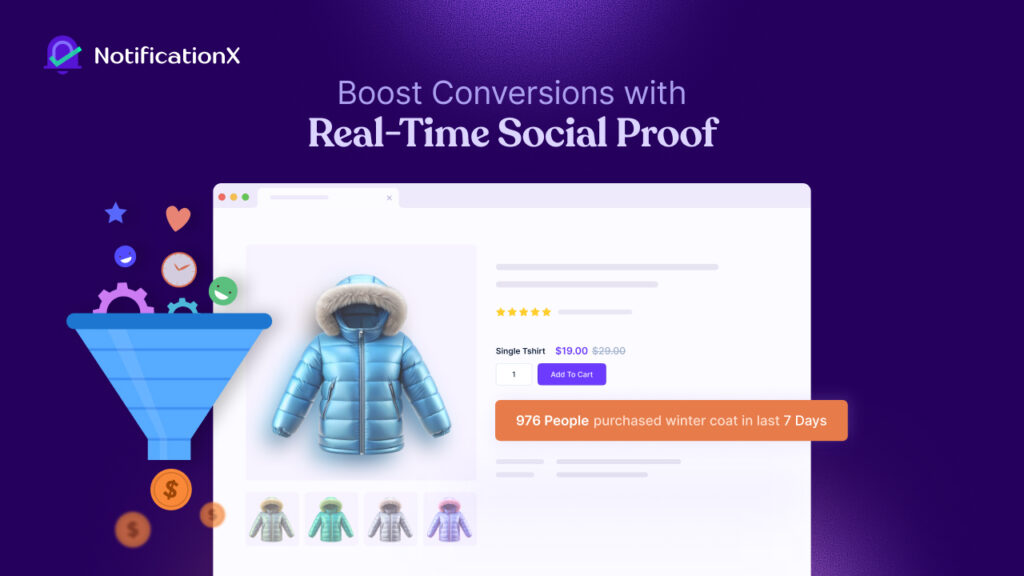Traditional marketing strategies are now no longer enough to stay competitive among countless brands and companies. So, brands constantly strive to connect with their audience on a deeper level. This goes beyond simply pushing products and services; it is about understanding their needs, wants, and goals. Here is where empathy in marketing comes in. It is the ability to step into your customer’s shoes and see the world from their perspective so that you can run more personalized marketing campaigns and boost growth.

However, empathy in marketing often takes a narrow view, focusing primarily on emotional connection. While this is important, a truly empathetic marketing strategy extends beyond emotions and embraces accessibility.
♿ Accessibility: More Than Just a Checkbox
Accessibility is often seen as a technical hurdle – something developers need to consider to comply with regulations. But when accessibility is viewed through the eyes of empathy in marketing, it becomes a core marketing principle. It is about ensuring everyone, regardless of ability, can access, understand, and interact with your marketing content.
Imagine a visually impaired customer who cannot see the beautiful product images on your website. Or a hearing-impaired customer who cannot grasp the message in your video ad. These are missed opportunities to connect with a significant portion of your target audience.
By prioritizing accessibility, you are not just ticking a box, you are demonstrating genuine empathy in marketing for your entire customer base. You are sending a powerful message that your brand is inclusive and welcomes everyone.
💼 The Business Case: Accessibility & Empathy in Marketing
Beyond the ethical imperative, there is a strong business case for accessibility in marketing. Once you catch the attention of everyone and leave no one behind, you automatically start gaining the soft corners of every single type of customer. When your brand and marketing tactics include items accessible to people with disabilities, average customers too tend to opt for your brand. Here are some key benefits:
🌟 Reaching a Wider Audience
Accessibility opens doors to a vast and often overlooked market segment – people with disabilities. According to the World Health Organization, roughly 16% of the global population experiences some form of disability. That is a significant market share you could be missing out on.
🌟 Improved Brand Perception
When you prioritize accessibility, you are seen as a brand that cares about inclusivity. This fosters trust and loyalty among customers with disabilities and positions your brand positively in the eyes of everyone who values diversity.
🌟 Enhanced SEO
Many accessibility features, like clear descriptions and keyword-rich alt text, also improve search engine optimization (SEO). Making your content accessible ensures it is readily discoverable by a wider audience through search engines.
🌟 Reduced Legal Risk
Accessibility regulations are becoming increasingly strict worldwide. Proactive accessibility in marketing ensures your branding materials comply with these regulations, minimizing legal risks.
📝 Putting Empathy into Action: Ensuring Accessibility & Empathy in Marketing

Now that we understand the importance of accessibility and empathy in marketing, let us explore some practical strategies for incorporating it into your marketing efforts:
💡 Content Creation
In the world of content marketing and creation, it is crucial that you leave no one behind. Otherwise, you may lose them all, including your target audience. Let us see how you can ensure accessibility in marketing content.
📌 Clear & Concise Language: Use simple, easy-to-understand language free of jargon. Break down complex concepts into bite-sized pieces.
📌 Alternative Text for Images: Descriptive alt text for images conveys their meaning to screen readers used by visually impaired individuals.
📌 Captions for Videos: Captions ensure people who are deaf or hard of hearing can follow the video’s narrative.
📌 Transcripts for Podcasts: Offer transcripts for podcasts, allowing people who prefer reading or who have hearing difficulties to access the content.
📌 Color Contrast: Always try to maintain sufficient color contrast between text and background for better readability, especially for people with visual impairments.
💡 Website Design
Giving web access to everyone is a modern need. People who do not have access to the digital world are left out and cannot keep up with what is happening around them. So, when planning website design for your web visitors, it is a smart idea to make web design accessible to everyone.
📌 Keyboard Navigation: Ensure your website is fully navigable using just the keyboard, catering to users who may not be able to use a mouse.
📌 Screen Reader Compatibility: Design your website to be compatible with screen readers used by visually impaired individuals.
📌Mobile Responsiveness: A responsive website design ensures optimal viewing on all devices, including those used by people with limited mobility.
💡 Social Media
We are living in a time where social media is more dominant than socializing people at real events. Whether you accept it or not, social media is vibrant for community building and organizing anything for business.
📌 Descriptive Hashtags: Utilize descriptive hashtags that convey the meaning of your posts, aiding both search engines and visually impaired users.
📌Live Captioning for Videos: Use live captioning features during live video streams to enhance accessibility.
📌Alt Text for Images: Include alt text for all images shared on social media platforms.
📊 Measuring Impact & Building Empathy for Accessible Marketing
The impact of accessible marketing goes beyond traditional metrics like clicks and conversions. When you actively seek feedback from users with disabilities to understand how your marketing items are performing, you can identify areas for improvement. Plus, if you monitor engagement metrics like shares and comments on accessible content, it will be easy to understand user reception.
On top of that, once you start analyzing how users with disabilities navigate your website and identifying any challenges they may face, you can make adjustments accordingly. Once all goes well and your marketing strategy is set, you can then get a good boost in your sales and build a brand that values everyone and is valued by everyone.
If you have found this blog helpful, feel free to share your helpful opinion and insightful feedback with our Facebook community. You can also subscribe to our blogs for valuable tutorials, guides, knowledge, tips, and the latest WordPress updates.




